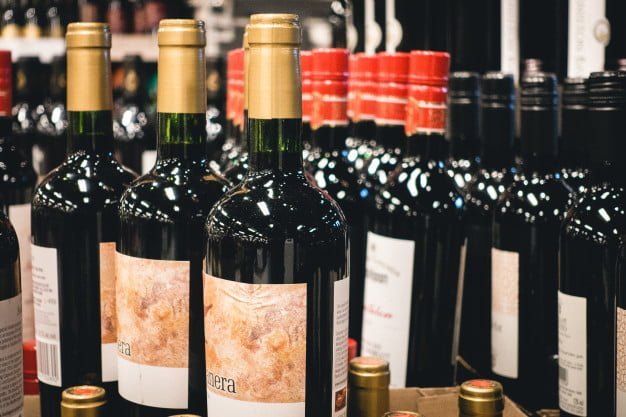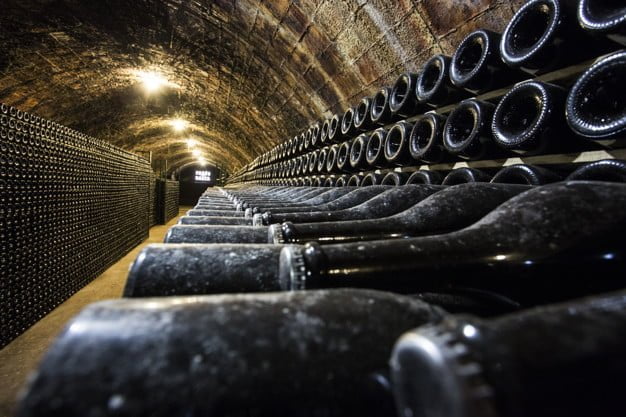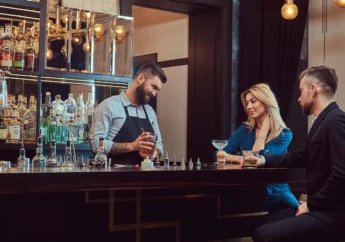Everything You Need to Know About Starting a Wine Business
by Mashum Mollah Starting a Business Published on: 02 October 2020 Last Updated on: 06 December 2024

A dry riesling, fruity blend, or a good old chardonnay doesn’t just happen: every collector-item bottle earns its remarkable flavour from the vineyard and harvesting to fermentation, bottling, and optimal long-term storage. Vintage wines, in particular, are regarded with an air of sophistication for the consistency of their bodies, potency, aroma, and taste — and even more so decades later.
There’s always a demand for a good glass of wine: beyond dinner parties, heartfelt toasts, and even just capping off a long day, the wine industry is thriving and continuously satisfying every enthusiast’s taste for intense, memorable flavours from both classic or traditional vineyards, and emerging markets.
For wine lovers and aspiring connoisseurs, tapping into this demand is a matter of understanding procedural regulations, and figuring out the logistics of fermentation, bottling, storage, and sales with the help of the right equipment for identifying a core flavour profile, market, and the best sites to grow and extract award-winning grapes. And because you already love wine and understand everything that’s good about it, launching your own wine would be as fun and exciting as every sip of a new bottle.
Things to know before starting a Wine Business:

Have you always pictured yourself picking sweet grapes and taking long strolls along a vineyard? You’re not alone — for wine lovers, this romantic landscape leaves much to be desired, like the opportunity to turn their love of a full-bodied red or a crisp white into a real business. The good news is, with the right equipment, you can pivot from an impressive collection of some of the most sought-after vintages into a new generation of bottles with your name on the label.
a) Create a Business Plan
Every winery starts with a core vision: what type of wine do you want to sell? What flavours, aroma, and consistency do you love and want to share with both serious wine lovers and those just starting to embrace the intoxicating sophistication of every bottle? Knowing what type of winery you want to open sets up the rest of your business — it tells you what kinds of grapes to grow, when they are best in season and when to harvest them, and how to ferment them to achieve a distinct signature flavour.
b) Define Your Brand and Market
Whether it’s a fruity blend, a full-bodied red, or a crisp white, your wine’s flavour profile also largely depends on where the grapes come from. Scout potential locations for your vineyard in areas where these grapes grow best, and take a look at your finances to determine how your business model allows you to recoup the required initial investment in as little time as possible.
As well, make sure to have a target audience in mind — who would love these bottles, and how will you create differentiation from competitors in the local market? Do your research every step of the way, from grape varieties and vineyard location, to budget, distilling, and manufacturing, and sales to ensure a rewarding investment.
Tips for Improving your Wine Business:
It’s no secret that the wine industry is already filled with connoisseurs and taste-makers — for decades, or even centuries now, major players have perfected the art of curating a selection of vintage bottles that collectors all over the world chase. For traditional vineyard locations, even the local wine scene is already buzzing with emerging labels.
1. Know Your Competition
Still, it doesn’t have to be scary for new players. Like you, many of these established brands began with a vision to share their love of a good bottle. The difference is, they’ve found success by curating a unique take on well-loved chardonnays and cabernets, starting with where their vineyards are located, and the types of grapes they use. You can do that, too.
2. Create Product Differentiation
As an emerging brand, it’s important to generate a lot of buzzes and create opportunities for customers to experience your flavours. Once you’ve perfected a blend and locked in the manufacturing specifics, make sure to share it with your target market. Start with unique events, such as pop-up tastings and vineyard tours, and make sure to constantly share this engagement on your brand’s social media profiles and website to continuously drive reach and sales.
3. Engage Wine Lovers
As well, craft marketing messages that target your ideal customers: their location, lifestyle, wine preferences, and even brands — like your competitors — that they already know and buy from.
Keep customers hooked with exciting introductory offers, share the story behind every bottle, and create a rapport based on your shared love of a good glass both online and in-store or at tasting events. For maximum returns, partner with the right winery software and ensure that leads, sales, engagement, and inventory are properly tracked.
Wine Storage Ideas:

They say wine is best served aged, but this doesn’t happen simply by leaving the bottle alone. Ageing wine is a careful process that’s largely defined by storage: where and how it’s stored for optimal climate control and consistent flavour, aroma, and texture. A commercial refrigerator guarantees that.
i) Optimal Wine Storage in Commercial Refrigerators
A commercial refrigerator guarantees optimal, climate-controlled, and high-volume storage for multiple bottles of your best wines. Commercial refrigerators are designed with generous shelf space, smart thermostats, energy-efficient LED lighting and a sleek, contemporary finish for proper storage and enticing visual display.
Whether it’s an under-counter or tall upright model, a commercial refrigerator can help preserve the distinct taste of your best bottles — and achieve the desired well-aged flavour over long-term storage.
ii) Tips for Storing Wine in Commercial Refrigerators
Using the right commercial refrigerator with ample shelf space and temperature controls is just the first step. To preserve your best bottles for sale, make sure that the refrigeration unit holds consistent temperatures. This avoids exposure to humidity, as well as direct sunlight.
Inside the commercial refrigerator, make sure that bottles are stored in a horizontal position. Avoid movement and vibrations impacting the refrigeration unit to keep the bottles in place. Book a regular maintenance service to check its condition and tune-up parts as needed.
Start Your Wine Business Today:
Your vineyard dreams can definitely come true — with a distinct flavour profile, the perfect vineyard location and distillery setup, a defined consumer base, and optimal storage facilities; you can break into this competitive market.
Wine lovers everywhere are always on the hunt for the next bottle to add to their growing collection, and your label can be on one of them. With the right investment and strategy, you can successfully navigate the logistical and financial hurdles of launching your own winery and achieve master sommelier status in no time.
Read Also:



































































































